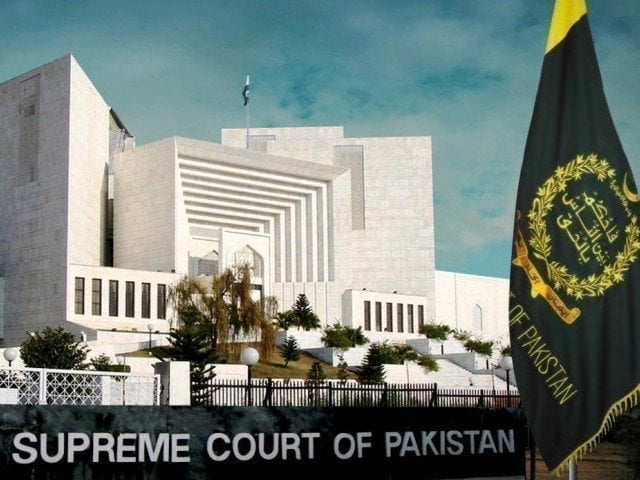Islamabad: The Supreme Court is hearing a case related to the disqualification period of 5 years or life, in which the Chief Justice has remarked that if the Quaid-e-Azam had been there in 2002, he would have been disqualified.
A 7-member larger bench of the Supreme Court, headed by Chief Justice of Pakistan Justice Qazi Faiz Isa, is hearing the lifelong disqualification case. At the start of the hearing, the Attorney General appeared in the court and said that he was supporting the legislation to make the penalty of disqualification 5 years under Article 621F.
The Attorney General said that the decision of lifetime disqualification should be reconsidered. He requested a re-examination of the decision on the interpretation of lifelong disqualification under Article 62 One F.
The Chief Justice inquired, “Attorney General! What is your position that the Election Act should be followed or the decisions of the Supreme Court?”, to which the Attorney General replied that the court is requested to review the decision of lifelong disqualification. I will support the Election Act as it is a federal law.
During the hearing, Saqib Jilani, the lawyer of the petitioner against Mirbadshah Qaisrani, also opposed the lifelong disqualification. The lawyer said that I filed the application in 2018 when the decision of life disqualification came under 621F. Section 232 has now been added to the Election Act, so the plea to the extent of lifelong disqualification does not follow.
The Chief Justice inquired whether anyone had challenged the Election Act 2017 in the court, to which the petitioner told the court that the Election Act had never been challenged in anyone’s court. The Chief Justice asked if there is any provincial government that opposes the Election Act 2017, to which the provincial advocate generals stated in the court that all the provincial governments are supporting the Election Act 2017.
On this occasion, the Attorney General invoked Article 62, 63 of the Constitution again. The Attorney General read out all the constitutional requirements for eligibility and disqualification to become a Member of Parliament. The Attorney General said that both Articles 62 and 63 are observed from the time of nomination papers. Both articles are applicable at the point of entry.
The Chief Justice said that some clauses are related to facts, they are easy. Some clauses are difficult, like the clause of good character. Having good knowledge of Islamic teachings is also a clause. I don’t know how many people will be able to pass this test? Election Act. This amendment is not challenged. When there is an amendment, we accept it without disturbing the old decision.
The Attorney General said that the impression may be that the Supreme Court decision was overwritten by a law. The Chief Justice said that now can we revisit the Samiullah Baloch decision. Attorney General said that in the Samiullah Baloch case, the court ignored one point. The court said that in a criminal case the prisoner goes to jail after conviction. Hence the disqualification is less. The court did not see that Declaration 62 OneF remains in field both in criminal cases.
The Chief Justice remarked that we are sinners and seek forgiveness from Allah. The period of disqualification is not mentioned in Article 62 but it was given by the court. The Attorney General said that as long as there are judicial decisions, the declaration of lifetime disqualification remains in place. The Chief Justice remarked that even the Election Act has been implemented and it has not been challenged. Justice Mansoor remarked that the question is whether it is possible to amend the constitution through sub-constitutional legislation.
Apart from the Chief Justice of Pakistan, the larger bench of the Supreme Court also includes Justice Mansoor Ali Shah, Justice Yahya Afridi, Justice Aminuddin Khan, Justice Jamal Khan Mandukhel, Justice Muhammad Ali Mazhar and Justice Musrat Hilali.
It may be noted that the Supreme Court had taken notice of the inconsistency between the court decision and the Election Act, after which the case was scheduled for hearing today and a public advertisement was also issued in newspapers about the case.


